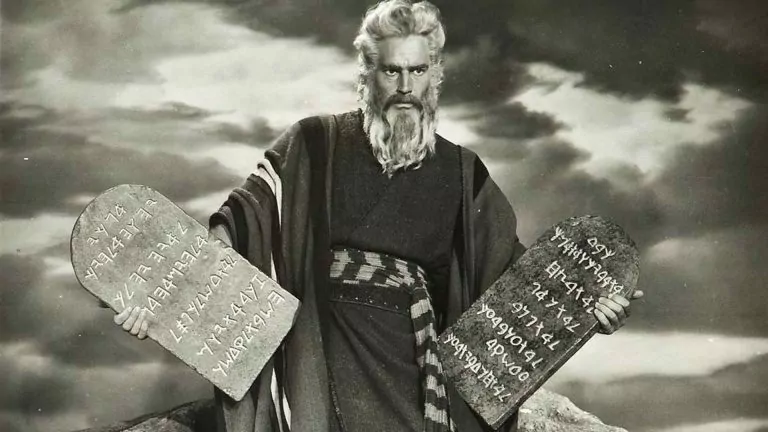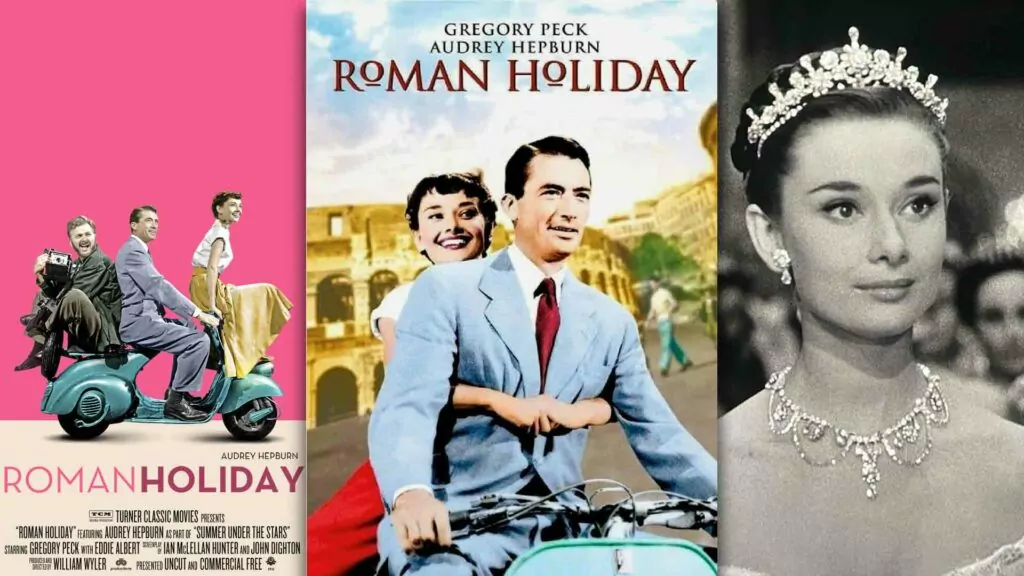The “telephone game” goes by many different names but it’s always played the same way. A number of children sit in a circle and the “operator” starts things off by whispering some phrase or sentence to his neighbor. The neighbor then whispers the message to the next child, trying to pass it on as accurately as she can. By the time the message makes its way around the circle to the very last child it will bear little resemblance to the original: “I’ve got a pair of red pants” somehow turns into “Ivy’s got a pail of dead ants!” It’s good silly fun but the game also shows how easily information can become corrupted by being relayed
Biblically-based movies face this same problem. It’s simply inevitable that the message we see on the screen won’t be the same as the one we find in the Bible – each step along the way, as it passes from Scripture to screenwriter this is an opportunity for corruptions to intrude, whether accidentally, or by deliberate choices. While writing about biblical stage productions, Rev. John van Popta, highlighted the problem they share with biblical movies:
The data in the Bible is usually not enough to fill out the dialogue. .…a drama based on the Bible, will have a script which includes all kinds of extra material, actions and characters, as well as inaccuracies and misrepresentations.
Consider also that a great deal of what we say is communicated by our body language. God chose not to use this medium, relying instead on the written word. So all the choices made by the director and actors in how they sit, stand, and interact – will they have Jesus stand boldly, with hands on his hips, or meekly seated, staring down at the ground? – are going to be extra-biblical additions that depart from the text.
The Passion of the Christ
The changes can be subtle and yet significant. Consider The Passion of the Christ, likely the biggest Christian film of all time. At the time it came out Christine Farenhorst noted how the film obscured that
“…the greatest torment that Christ experienced on the cross was not caused by the nails driven into His flesh, but in His being made ‘sin for us’ and vicariously suffering the righteous punishment of the Father in our place. Even the worst physical torments inflicted by the Sanhedrin and the Romans upon Jesus were nothing by comparison to the anguish of having the sins of all the elect imputed to Him and making full satisfaction for them. Satisfying the justice of the Romans on a cross was comparatively easy. Thousands of condemned men and women, including Spartacus and several of the Apostles did that. But only Christ could satisfy the justice of God.”
The Chosen
In the recent The Chosen TV series, women end up in more prominent roles than they have in the Scriptures, with the most notable being the healing of the paralyzed man of Luke 5:17-25. It was men that arranged for their friend to be lowered through the ceiling to be healed by Jesus. In this series the writers have inserted two women, Tamar and Mary Magdalene, and credited the idea to them. Why this rewrite? The spirit of our age says that women derive their value, not from being made in the Image of God, but by doing and being able to do whatever men can do. This seems in keeping with that spirit.
It’s also worth noting that in focusing more on the disciples and followers, The Chosen has made Jesus less central, and more of a supportive character.
VeggieTales
The changes can also be glaring. When the folks at Big Idea Productions decided to do a version of the Fall of Jericho using animated talking vegetables – a “VeggieTale” – the Israelites in their story grumbled that they felt too silly to march around the walls of the city. But in Joshua 6:1-21 we read that this is one of the only times Israel didn’t complain or question God. Big Idea’s Josh and the Big Wall is a video made by sincere Christians, for other Christians, that Christian children are likely to watch again and again, and yet this video departs sharply from the Scripture it claims to portray.
In other VeggieTale biblical epics, the alterations are more understandable, though no less problematic. Their account of Daniel in the lions’ den had this prophet emerges unscathed, and the men who plotted against him run away. In reality, these men were thrown into the den, and,
“before they reached the floor of the den the lions overpowered them and crushed their bones” (Dan 6:24).
Not only were these plotters punished in this startling fashion, even their wives and children were consumed by the lions. In a cartoon intended for kids it might seem sensible to make this G-rated substitution for what would otherwise be an R-rated event. But that the real events would be unsuitable for a children’s cartoon isn’t a reason to recast reality in a “nicer” light – it’s a reason not to make a cartoon about that reality. And this isn’t the only time VeggieTales has felt free to insert a “nicer” endings to a biblical tale. In Esther, the Girl Who Became Queen, Haman plots against the Jews but instead of trying to kill them he attempts to banish them to the “Island of Perpetual Tickling.”
Are nicer endings really such a problem?
Well, just consider how many Christians would be shocked to read an Old Testament passage in which God demands the slaughter of women and children. In a quest to embrace the God of love many Christians prefer to forget that He also demands justice and can be wrathful as well. By inserting these “nicer” endings, VeggieTales actually hide the true character of God from children. And since children are likely to view these videos repeatedly, and read the corresponding Bible passages infrequently, that is real damage being done.
Even when the Veggie version is fairly faithful – as happens in Dave and the Giant Pickle – it’s still going to be comical – here we have a cute David, played by Junior Asparagus. How often is cute and comical going to be a good match for the tone of the biblical text?
Conclusion
What I’ve raised here are practical objections to biblical epics – that they so often garble the message. But what if someone did a much better, more careful job? Then would it be a problem? Let me answer by offering two texts to consider.
First, Revelation 22:18-19 concludes with a warning against making additions or subtractions to “the words of the prophecy of this book…” Is this referring only to Revelation, or the whole of the Bible? However you understand it, wouldn’t the principle – to have great respect for the words God has delivered – have application to the whole of the Bible? And the consequences listed – that those who make additions will have the plagues added to them, and those that take away will have their part in the Tree of Life taken away – would also seem to encourage Christians to err on the side of caution.
Second, biblical dramas have a long history of being used to teach an illiterate laity. But the Heidelberg Catechism, Lord’s Day 35 applies the Second Commandment (Ex. 20:4-5, Deut. 5:8-9) as forbidding the use of images to teach God’s people:
… we should not be wiser than God. He wants his people to be taught not by means of dumb images but by the living preaching of his Word.
The Reformation brought with it a push for literacy to allow people to learn straight from God. Instead of the “telephone game” with the message filtered through actors and scriptwriters, God’s children could receive His Word directly. Why go back?
Now, biblically-based movies probably won’t do much damage to biblically literate Christians; they’ll certainly see through the glaring errors, and may well catch most of the subtle miscommunications as well.
But these films aren’t really made for biblically literate Christians. Isn’t the reason that these films are so popular because they make Christians feel as if we are learning as we’re watching? How many will view the movie and then go straight to Scripture and read the passage? Don’t we watch the movie instead of reading the passage? Or maybe we watch it to receive what isn’t in the passage – the kind look on Jesus’ face, or the heartwarming interactions between the other characters. Then instead of the real deal, instead of direct communication with God through his Word, we end up settling for the garbled communication we get via the screen’s second-hand Scripture.
Charlton Heston as Moses, from the film “The Ten Commandments” is copyright © 1956 Paramount Pictures Corporation. Used with permission.













